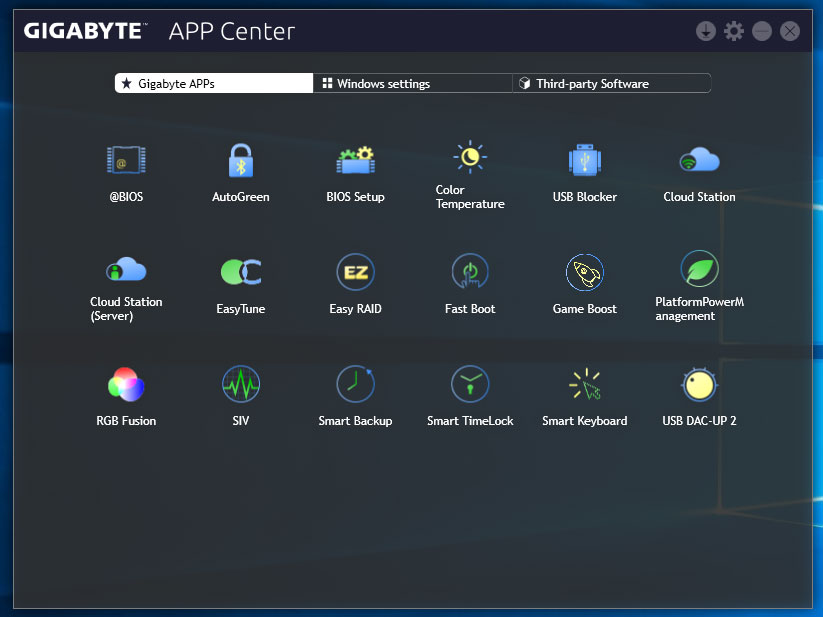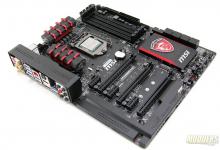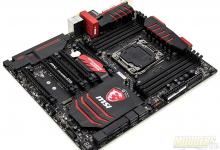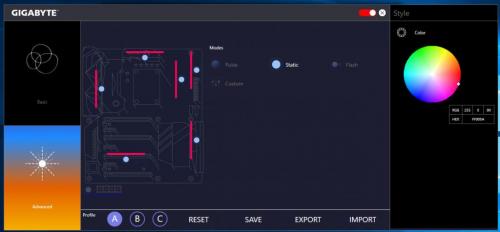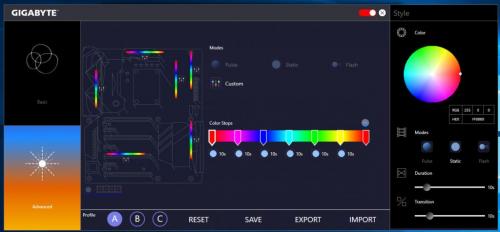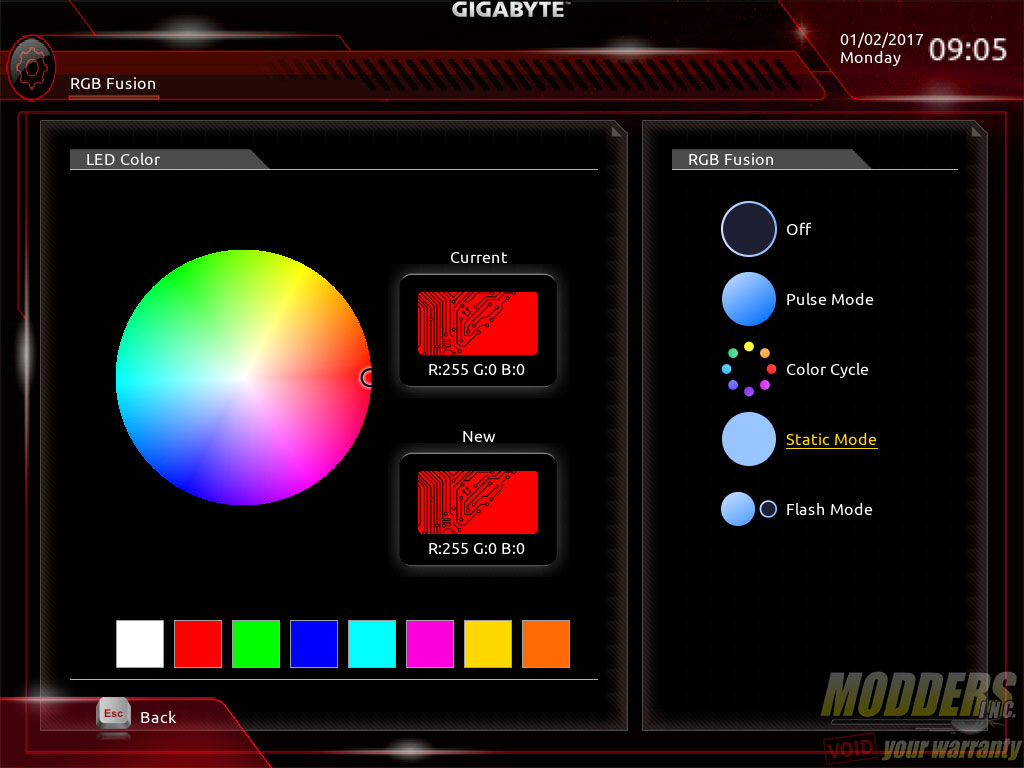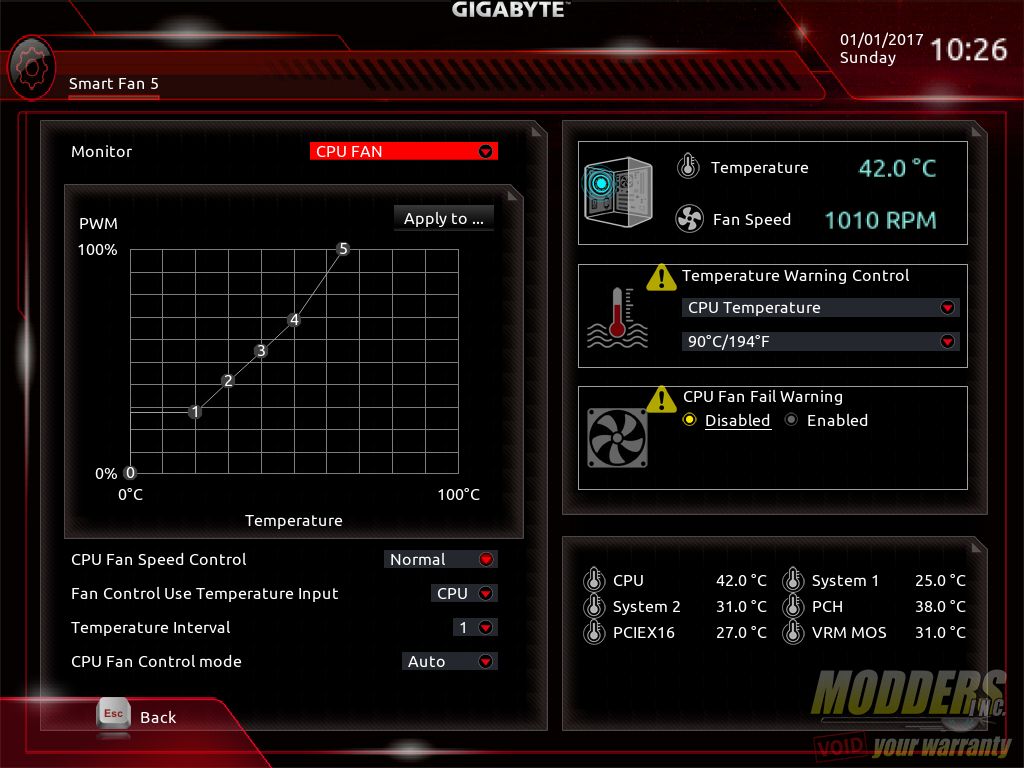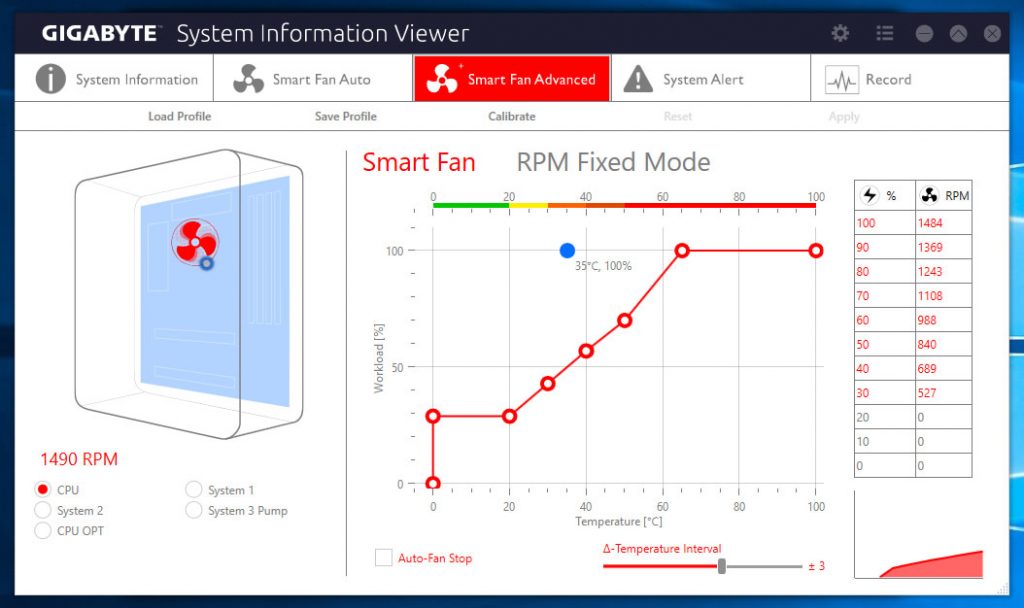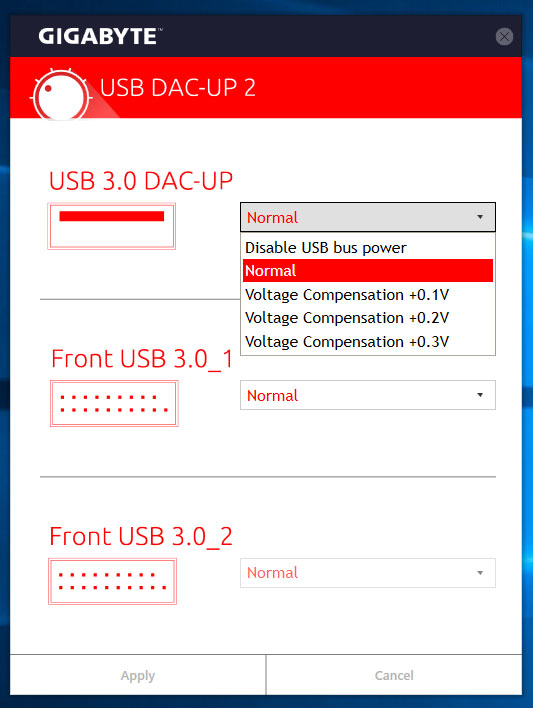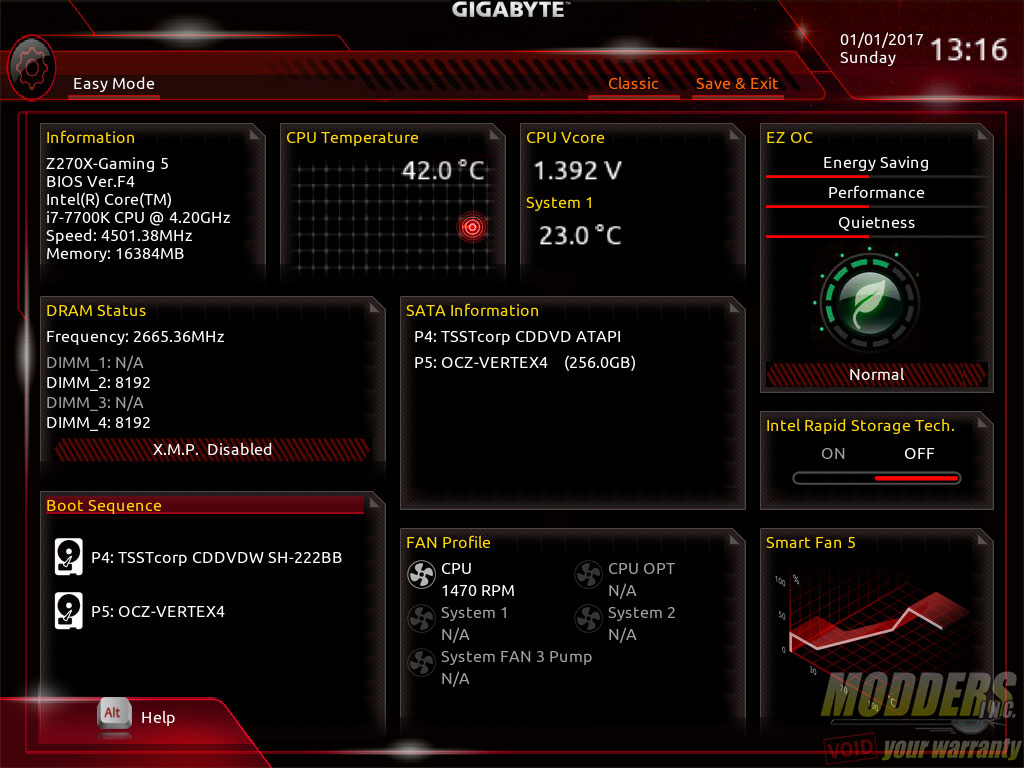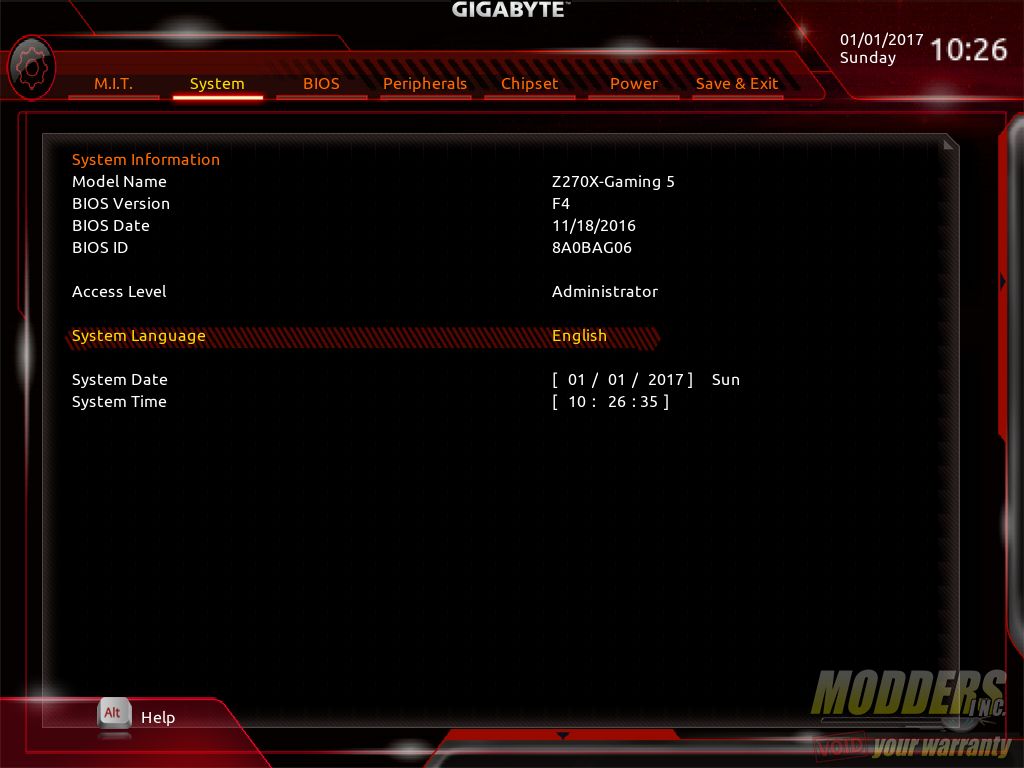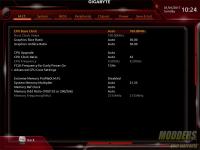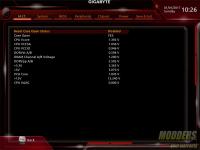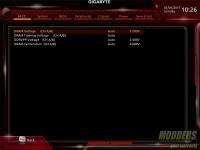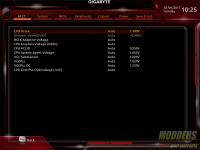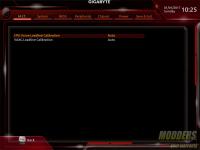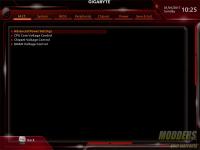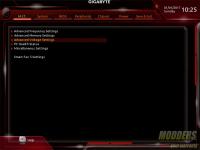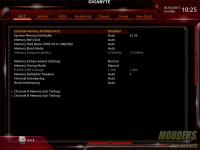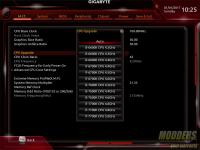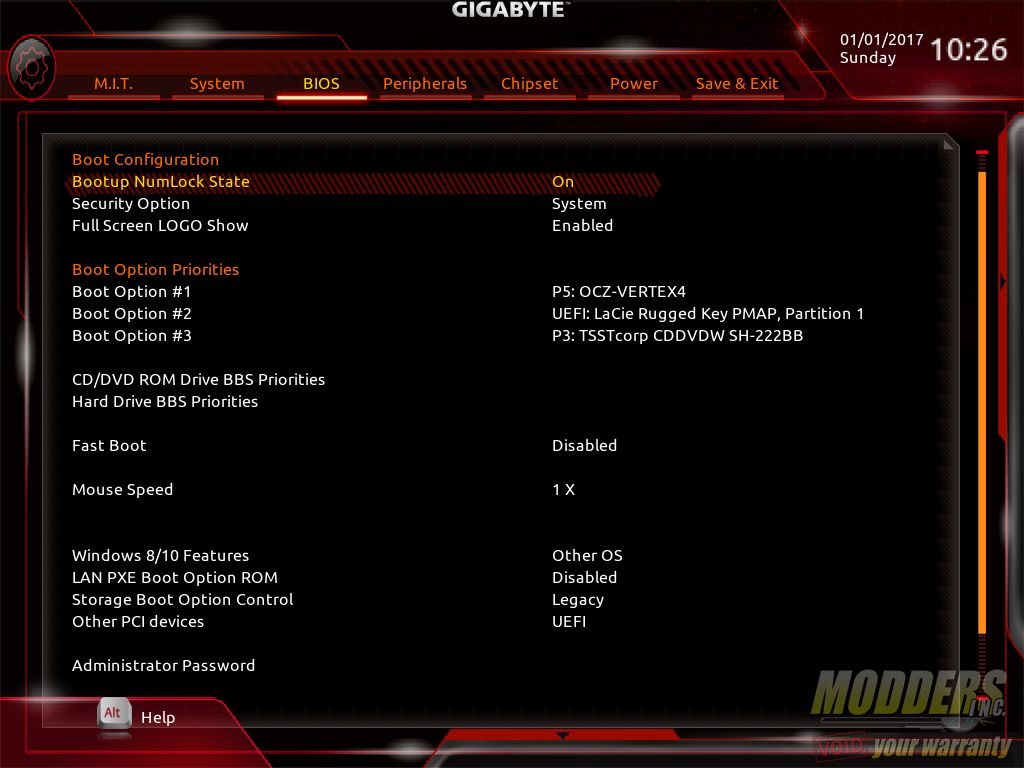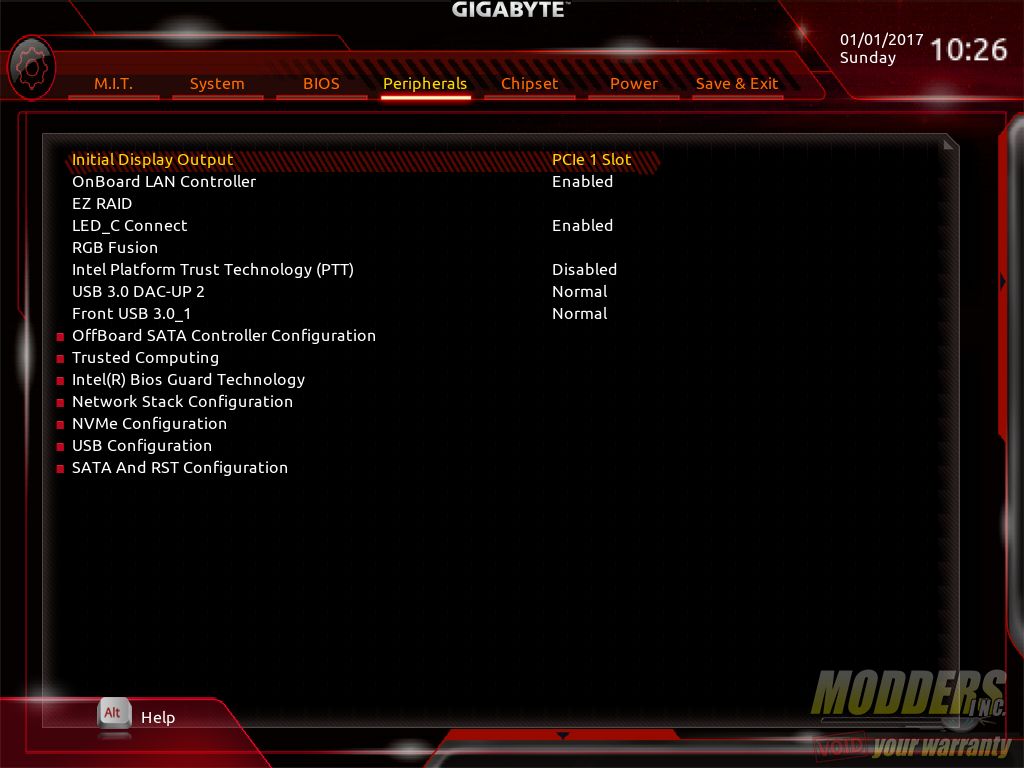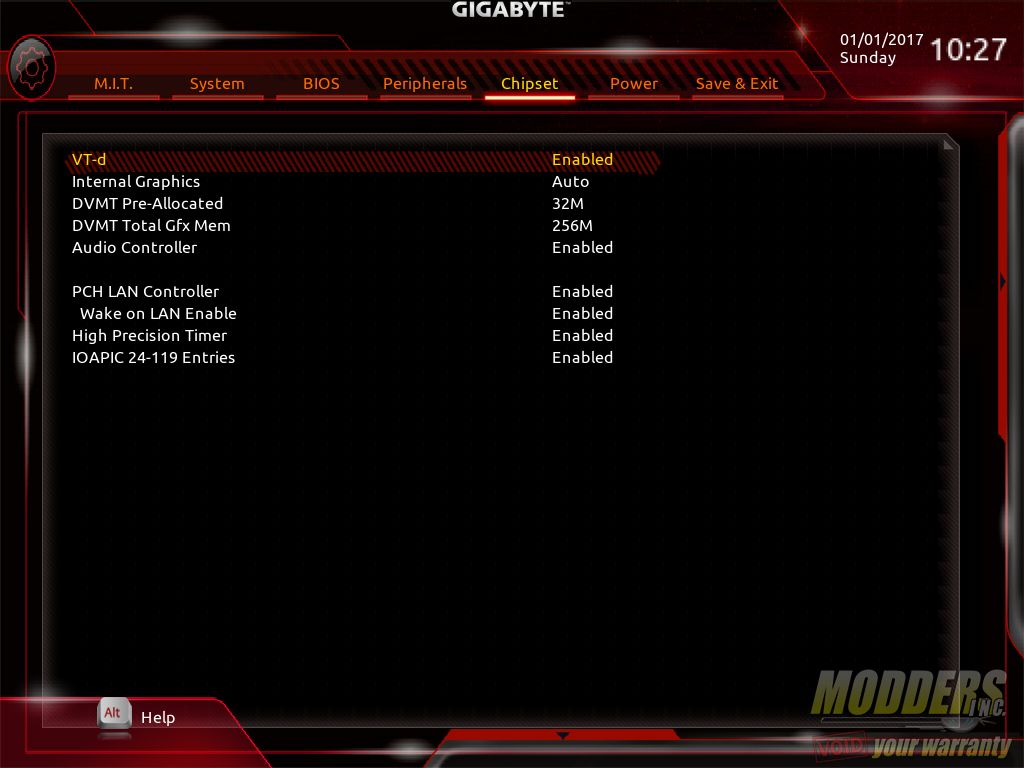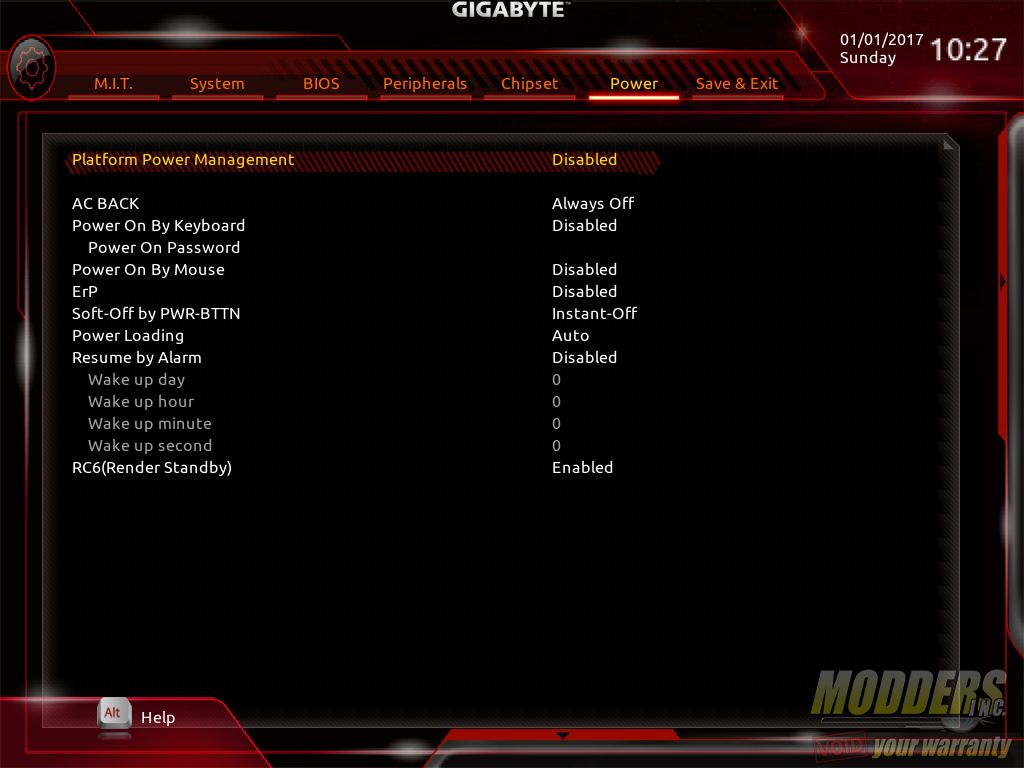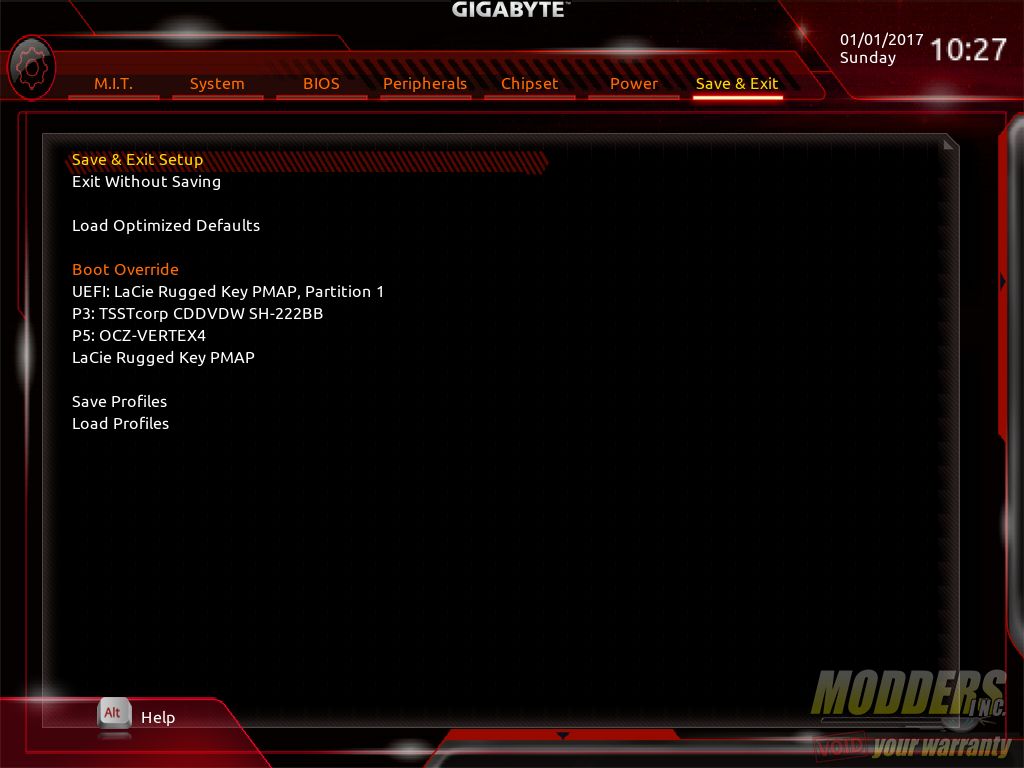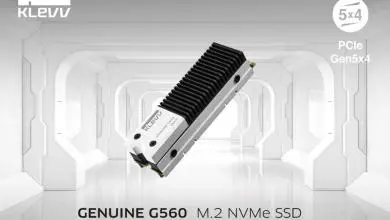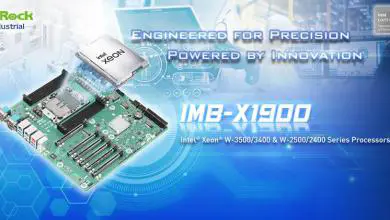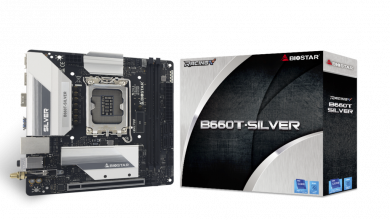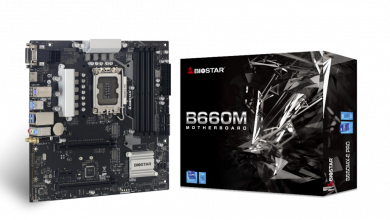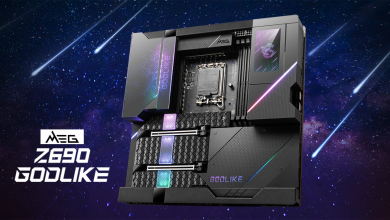AORUS Z270X-Gaming 5 Motherboard Review
Bundled Software
Gigabyte App Center
The App Center is a one-stop launch pad for the Gigabyte bundled software. It sits on the Windows system tray and opens up to a translucent floating window from where users can launch the Gigabyte applications installed. All the applications are Windows 10 compatible and verified in this review. Users can adjust the colors to fit the various Gigabyte theme colors including blue, orange, green and red. Gigabyte’s Easy Update is also now integrated into the APP Center, so users can update directly from the launching pad. These are all similar to previously reviewed Gigabyte motherboards so check out what the rest of those features are by clicking here, otherwise, we’ll go over the new features that are exclusive on the Aorus Z270x-Gaming 5 motherboard.
RGB Fusion
The RGB Fusion software is a severely upgraded control center for RGB lighting onboard and connected to the AORUS Z270 mainboard compared to 100-series Gigabyte units. First, of all it is extremely snappy and responsive and much lighter compared to the previous RGB controller app. There is also an incredible amount of options as well as zone control now beyond just simply picking a color and preset. Up to three profiles can be saved and customized.
Similarly in the UEFI, there is also a feature like this present under peripherals but it is much more basic and was similar to Gigabyte’s 100-series RGB lighting controls.
The Smart Fan options are also new, now providing a graphical custom fan curve for users to adjust plugged in fans. This has been improved and allows users to set and monitor zones on the motherboard depending on where the fan is located on the case. There is both a UEFI and a desktop version inside the System Information Viewer software.
The USB DAC has also received a software control option on the desktop, allowing users to adjust the voltage or disable it entirely on all three output headers available.
UEFI Overview
This Easy Mode shows a single page overview of basic customizable settings as well as a quick monitoring of CPU, system temperature and plugged-in components. Each setting can be expanded with the click of the top right corner of each tab.
Classic mode:
The first default screen is the System Information tab. No information can be changed here other than system language, access level as well as date and time. This is actually the second tab in the Classic mode menu. A hidden menu showing the current system settings are also available to the right and other embedded UEFI features are accessible via a hidden menu on the bottom.
The Motherboard Intelligent Tweaker or M.I.T. tab is where users can overclock their CPU from. All the overclocking settings you need are in this tab including fan control for keeping the thermal levels in check. There are six sub-menus for adjustments here including a redundant Smart Fan settings option.
M.I.T.\Advanced Frequency Settings>:This is where overclocking values are changed with options to adjust CPU Base Clock, Integrated Graphics Slice and Unslice ratios , Memory multiplier and a sub-menu for enabling or disabling CPU-specific features. Users can use the PAGE UP or PAGE DOWN keys to increase or decrease values or just simply enter numerical values directly.
M.I.T.\Advanced Memory Settings>: This is the page for memory overclocking and timing adjustment and allows for memory divider setting up to 4133MHz
M.I.T.\Advanced Voltage Settings>: This page is for adjusting all the voltage related settings and there are five sub-menus to choose from depending on what to adjust. Advanced Power Settings is where Load Line Calibration is adjusted for the CPU and IGP (AUTO, Standard, High and Turbo).
Now onto the rest of the UEFI layout. The third tab is the BIOS features page which allows users to change boot priorities and set other boot options.
The fourth tab is the Peripherals tab which has the bulk of the motherboard related functions including enabling/disabling hardware such as USB, SATA, display and provides LED control.
The fifth tab is the Chipset page which toggles features on both the Z270 chipset and CPU northbridge such as internal graphics, audio controller, VT-d and PCH LAN Controller.
The sixth tab is the Power Management page which enables or disables power saving features as well as several platform power options.
The last page is the Save and Exit page where users can save and exit or save as well as load a profile locally. As with every decent exit page, there is a quick single-click boot override option.
